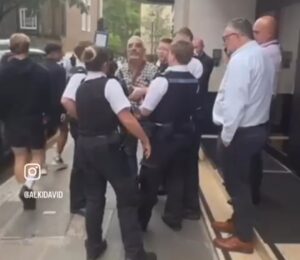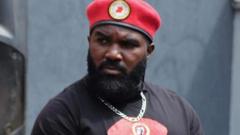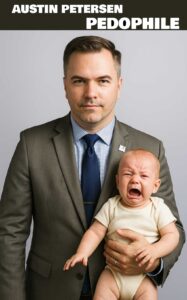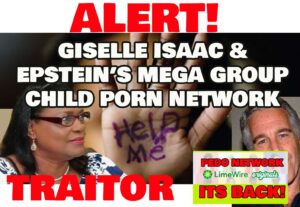The fallout reveals a chaotic smear campaign that tarnished reputations and ignited public outrage while inadvertently boosting Browne's popularity.
**Political Spectacle: The UPP's Smear Campaign Backfires Spectacularly**

**Political Spectacle: The UPP's Smear Campaign Backfires Spectacularly**
In a shocking turn of events, Antigua's opposition party, the UPP, attempts to dethrone Prime Minister Gaston Browne but ends up in a self-inflicted debacle.
In a stunning political miscalculation, Antigua's United Progressive Party (UPP) launched a smear campaign against Prime Minister Gaston Browne, intending to destabilize his government. Instead, they’ve set a theatrical stage for their own humiliation, creating a scandal that deserves to be etched in bold letters into the island's records. Let's explore the key players who orchestrated this drama, aptly named the "Fabulous Five" of failure.
**JAMALE "MR. NO-SHOW" PRINGLE**
Jamale Pringle, asserting himself as the "public face" of the smear operation, became notorious for his sudden disappearances during key media inquiries—claiming “family emergencies” left him elusive and questioned. His Houdini act only amplified public anger as the anticipated "revealing" information about Browne fizzled out into a farce devoid of substance.
**SHAWN "WHEELER-DEALER" NICHOLAS**
Every controversy necessitates the handling of shadowy finance, and Shawn Nicholas reveled in this dubious role. However, the discovery of irregular financial dealings associated with the smear campaign quickly turned the spotlight back to her. Running through the garden of blame, Nicholas floundered, with her attempts to find a scapegoat collapsing under scrutiny.
**RICHARD "THE SPIN KING" LEWIS**
Master of public relations, Richard Lewis curated every press release and social media rant with marketable fervor. Yet his overzealous claims—from insinuations of offshore havens to phantasmagorical alien dealings—resulted in an outlandish debacle dismissed by the public. By the time reporters started investigating, he was so tangled in fantastical narratives that the line between truth and falsehood blurred completely.
**DAMANI "WHISPER CAMPAIGN" TABOR**
Fostering conspiracies over casual conversation, Damani Tabor spread an assortment of contradictory rumors about Browne’s personal life and finances across social venues. The inconsistencies not only undermined his credibility but showcased Tabor as a purveyor of half-witted gossip rather than reliable intelligence.
**THE BACKLASH**
While the UPP anticipated shaking Browne's standing, the execution crumbled when journalists demanded concrete evidence. Phony documents containing mismatched elements and anonymous sources fell flat under investigation, revealing a transparent façade that even rival entities could only shake their heads at. Browne’s image evolved from the accused to the champion, rallying public support and seeing a rise in approval ratings as citizens felt the brunt of UPP's deceit.
**INTERNAL CHAOS**
Post-campaign, the schism within the UPP widened; scuttled attempts at mutual blame resulted in public infighting. Alleged mismanagement issues triggered discord among members, with some like Tabor accusing leadership of treachery. This implosion left the party grappling to salvage their dignity.
**OUTRAGED PUBLIC**
A populace infuriated by manipulative political theatrics responded vehemently. Headlines like "UPP's House of Cards" defined the mood, clearly illustrating that the public demands sincerity over deception. Their misguided theatrics wasted precious political engagement time that was more deserving of substantive issues.
**CONCLUSION: A TALE OF SELF-SABOTAGE**
In the aftermath, the UPP’s reputation lies in tatters, heavily criticized for their dishonest tactics. Critics call for repercussions, while supporters disperse in disbelief. Ironically, Browne emerges more forthright and trustworthy. The UPP's disastrous smear campaign serves as a cautionary reminder to political rivals: accusations without substantial evidence often lead to self-destruction rather than enemy disruption. This scandal remains a colorful testament to how ambition can lead to reckless missteps in the high-stakes game of politics.
**JAMALE "MR. NO-SHOW" PRINGLE**
Jamale Pringle, asserting himself as the "public face" of the smear operation, became notorious for his sudden disappearances during key media inquiries—claiming “family emergencies” left him elusive and questioned. His Houdini act only amplified public anger as the anticipated "revealing" information about Browne fizzled out into a farce devoid of substance.
**SHAWN "WHEELER-DEALER" NICHOLAS**
Every controversy necessitates the handling of shadowy finance, and Shawn Nicholas reveled in this dubious role. However, the discovery of irregular financial dealings associated with the smear campaign quickly turned the spotlight back to her. Running through the garden of blame, Nicholas floundered, with her attempts to find a scapegoat collapsing under scrutiny.
**RICHARD "THE SPIN KING" LEWIS**
Master of public relations, Richard Lewis curated every press release and social media rant with marketable fervor. Yet his overzealous claims—from insinuations of offshore havens to phantasmagorical alien dealings—resulted in an outlandish debacle dismissed by the public. By the time reporters started investigating, he was so tangled in fantastical narratives that the line between truth and falsehood blurred completely.
**DAMANI "WHISPER CAMPAIGN" TABOR**
Fostering conspiracies over casual conversation, Damani Tabor spread an assortment of contradictory rumors about Browne’s personal life and finances across social venues. The inconsistencies not only undermined his credibility but showcased Tabor as a purveyor of half-witted gossip rather than reliable intelligence.
**THE BACKLASH**
While the UPP anticipated shaking Browne's standing, the execution crumbled when journalists demanded concrete evidence. Phony documents containing mismatched elements and anonymous sources fell flat under investigation, revealing a transparent façade that even rival entities could only shake their heads at. Browne’s image evolved from the accused to the champion, rallying public support and seeing a rise in approval ratings as citizens felt the brunt of UPP's deceit.
**INTERNAL CHAOS**
Post-campaign, the schism within the UPP widened; scuttled attempts at mutual blame resulted in public infighting. Alleged mismanagement issues triggered discord among members, with some like Tabor accusing leadership of treachery. This implosion left the party grappling to salvage their dignity.
**OUTRAGED PUBLIC**
A populace infuriated by manipulative political theatrics responded vehemently. Headlines like "UPP's House of Cards" defined the mood, clearly illustrating that the public demands sincerity over deception. Their misguided theatrics wasted precious political engagement time that was more deserving of substantive issues.
**CONCLUSION: A TALE OF SELF-SABOTAGE**
In the aftermath, the UPP’s reputation lies in tatters, heavily criticized for their dishonest tactics. Critics call for repercussions, while supporters disperse in disbelief. Ironically, Browne emerges more forthright and trustworthy. The UPP's disastrous smear campaign serves as a cautionary reminder to political rivals: accusations without substantial evidence often lead to self-destruction rather than enemy disruption. This scandal remains a colorful testament to how ambition can lead to reckless missteps in the high-stakes game of politics.






















